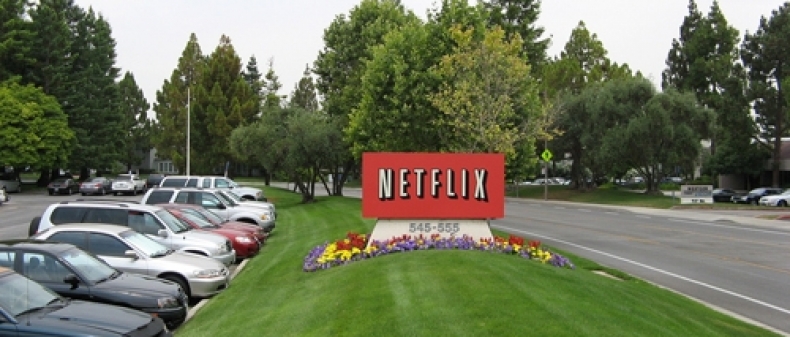
The first time I used Netflix, I couldn’t help but feel as if like I was doing something wrong. “Wait a minute,” I thought to myself. “I can just sit here and watch all of these movies and TV shows for less than 10 bucks a month?”
There were and still are legitimate gripes about the selection, but I clearly wasn’t alone in seeing the service as a great deal. Netflix was and still is amassing users at an amazing rate, and has now expanded across the Atlantic into the UK. And for a while the company became the symbol of digital video done right, even managing to one-up piracy.
Of course, recently the sheen has come off Netflix. First, they lost a huge chunk of content when the distribution company Starz decided that they could get more for their stuff elsewhere and walked. Then, the disastrous indecision over whether to split the streaming and DVD business in the US (here, we only have the former) spooked investors and the stock price crashed to less than a third of its previous value. If Netflix was once the poster child for legitimate digital media, things are significantly more tenuous at present. And nowadays, I find myself wondering if Netflix isn’t heading the way of what is arguably its spiritual predecessor: Napster.
It may seem odd to compare a service that bettered piracy (Netflix) to the name that we still associate with illicit downloading (Napster). But the overlap between the two services is more similar than one might think. When Napster first arrived, it felt much like a first encounter with Netflix: the sheer glut of choice was overwhelming and it started to change how we thought of “consuming” media.
Napster, like Netflix, also represented the way the mere existence of the internet would do things to established businesses, as we went from a model based on scarcity to one based on abundance. Moreover, Napster also changed how people started to think of music in general, as collections ballooned and the idea of quickly, easily–and illegally–getting what you want was brought to the fore?
Netflix, on the other hand, works because it excels as the legal inversion of that idea: it trades ownership for quick, simple access. The only trouble is that, like Napster, it may risk becoming too successful and in so doing, bringing the wrath of the content industry down upon it.
Napster’s “success” was that it unleashed the capacity of the web to spread digital copies of media around at lightning speed. Whether it was right or wrong (okay, it was wrong), what was clear was that the internet allowed for the free dissemination of media in a way that was never possible before. Naturally, for the groups who made hundreds of millions of dollars finding, funding and developing that “content,” this situation was untenable. Two incompatible views collided, and inevitably given the power balance, we all know how things ended.
Strangely though, Netflix might find itself in an analogous pickle. At first, Netflix was exclusively full of older, more obscure TV shows and movies. Studios were delighted to hand over their content because they’d finally found a way to monetize their back catalogues that were otherwise just sitting there. But as Netflix’s reach and buying power grew and grew, their catalogue started to include some newer shows, and now it is even expanding to original content. Netflix is also the single largest contributor to web traffic in North America. They are now a major player. For content owners, this is starting to be a problem.
Ever since Apple took over the music industry, content providers have been wary of similarly ceding control in other fields. The problem for Netflix, however, is that it’s beholden to those content providers and, like the failed Starz deal which saw hundreds of Sony titles disappear from the service, when content providers sense they can do their own thing, whether selling content elsewhere, or simply setting up their own services, Netflix just might be what many business analysts call “screwed.”
Sure, Netflix can offset things by funding its own content, licensing more titles or expanding internationally. But if either content holders like Sony or Universal, or tech companies like Amazon or Microsoft, decide to set up or really push their own streaming services (like Amazon seems to be doing), Netflix will be in serious trouble. Their business proposition–$8 a for all the movies and TV you can watch–is brilliant, but is also easily replicated and easily disrupted.
And it’s here that the tenuous comparison to Napster falls apart. Napster was an instructive blip, an experience with the more revolutionary aspects of the internet that then led to the success of legitimate services. Without Napster, there would have been no iTunes or Rdio. Because it works much better for everyone, that’s arguably a good thing.
But a world that sees Disney, Fox and Paramount et al balkanize content into their own little services would be a distinct step back. It would mean rights holders would push ownership (not sharing), like Hollywood’s spectacularly bad Ultraviolet program. It would mean more diffusion, and potentially the end of one of those things that the web did really well.
For people interested in new, consumer-friendly business models, that would be a real shame. The questions for Netflix now are whether it can balance its own needs and those of content providers–and if it can fend off competition from those very content providers themselves.
Navneet Alang is Toronto Standard’s tech critic. You can follow him on Twitter @navalang.
Subscribe to our newsletter.











